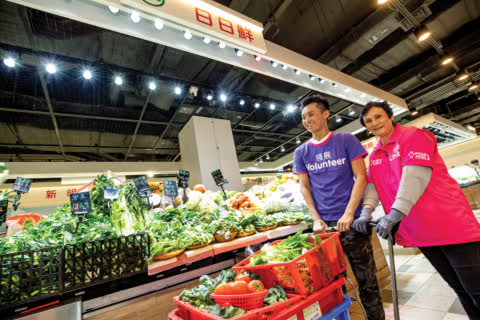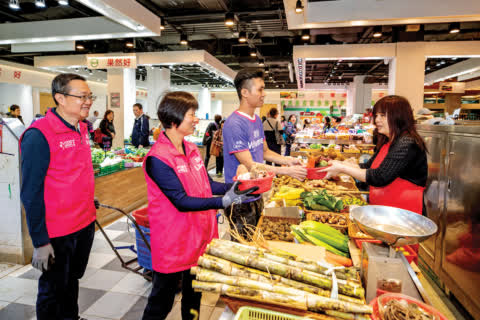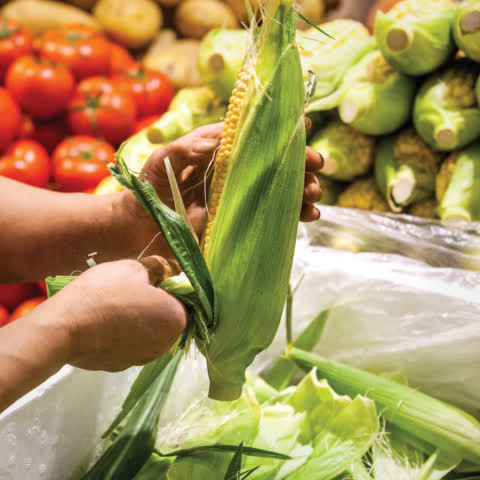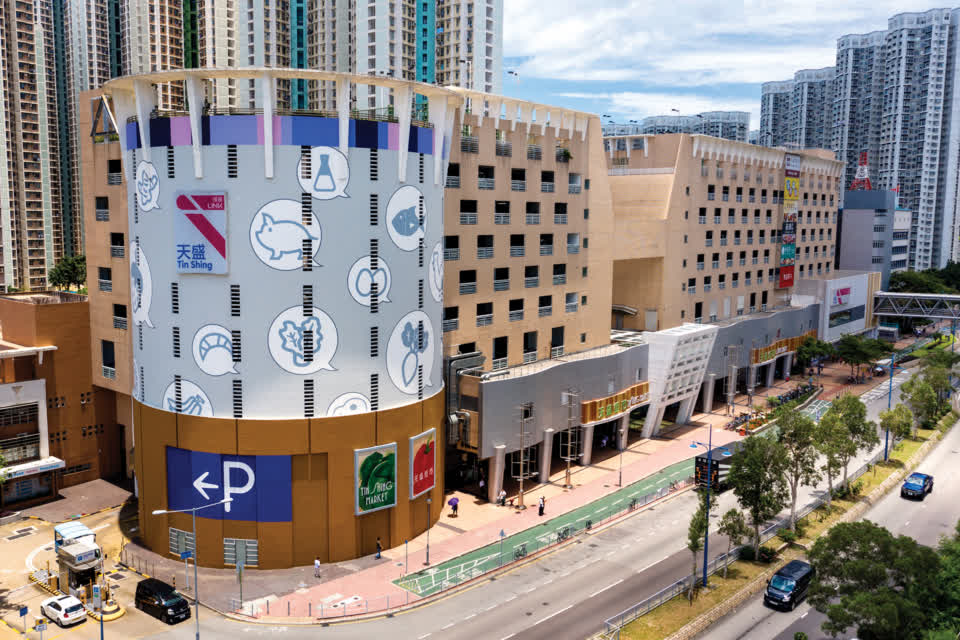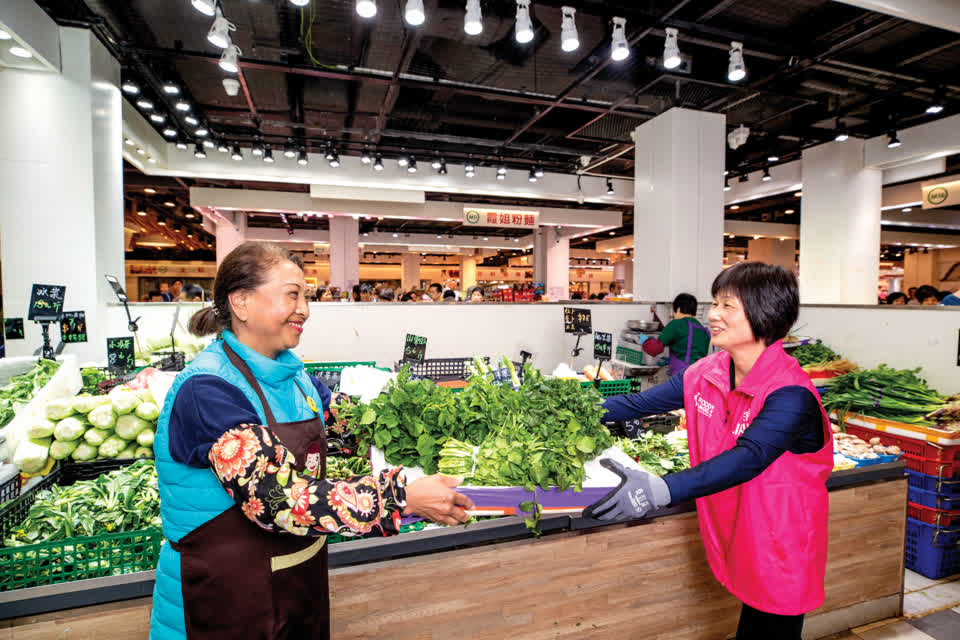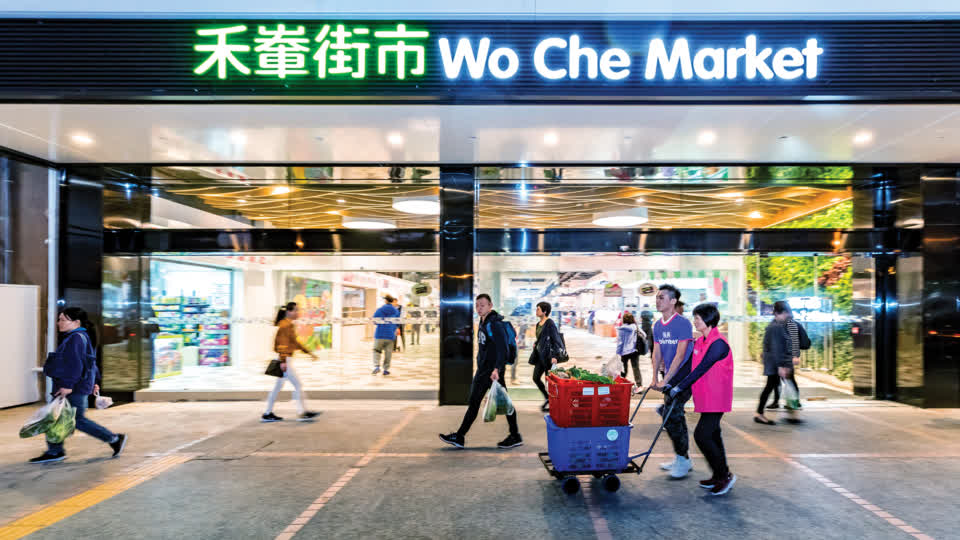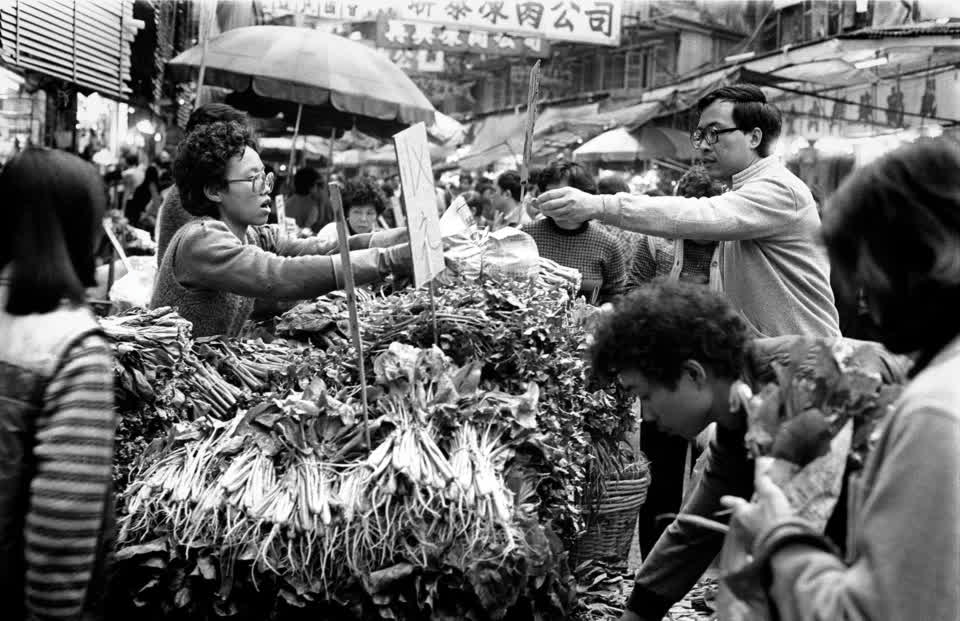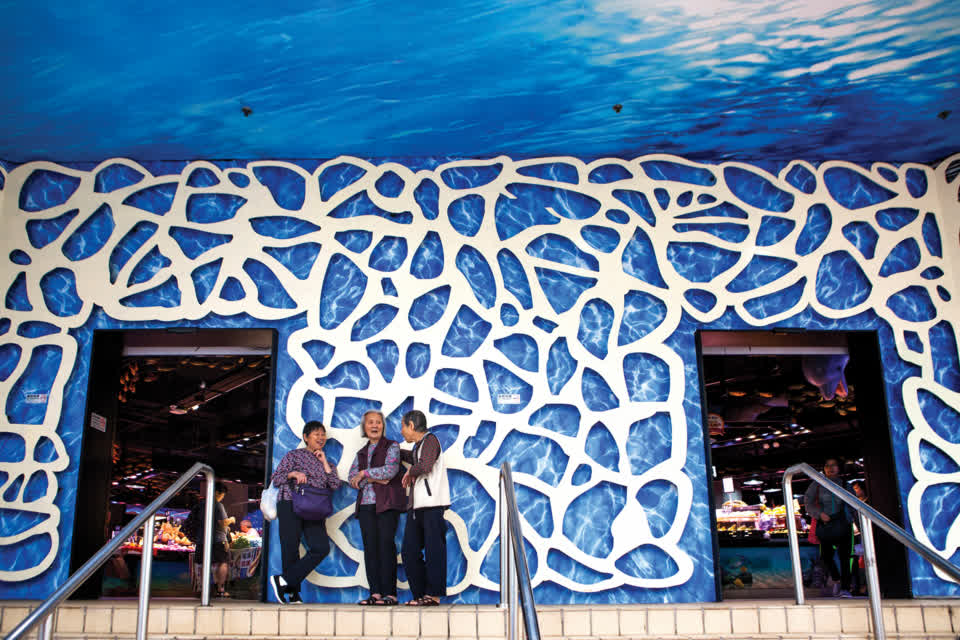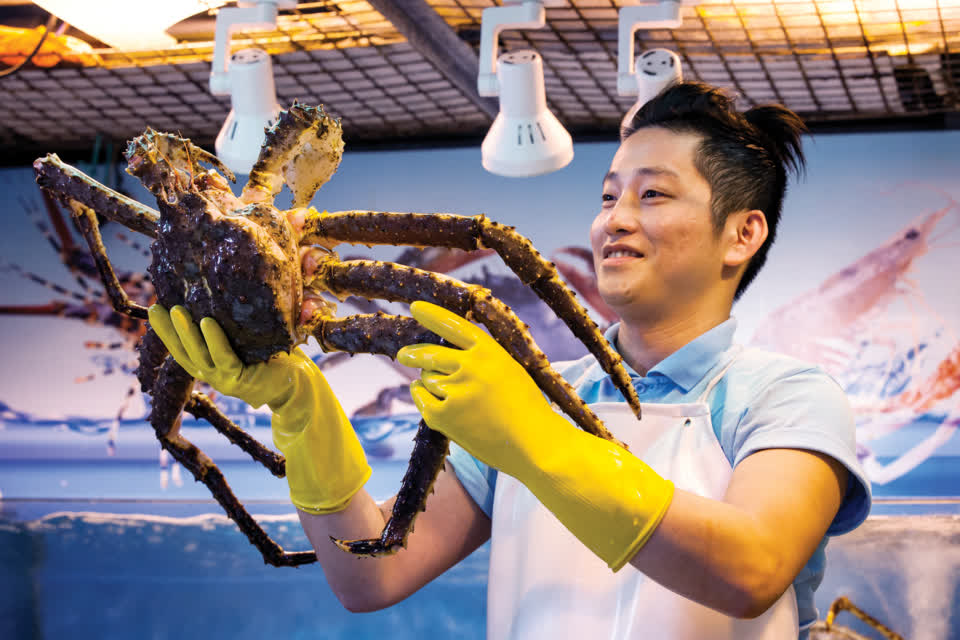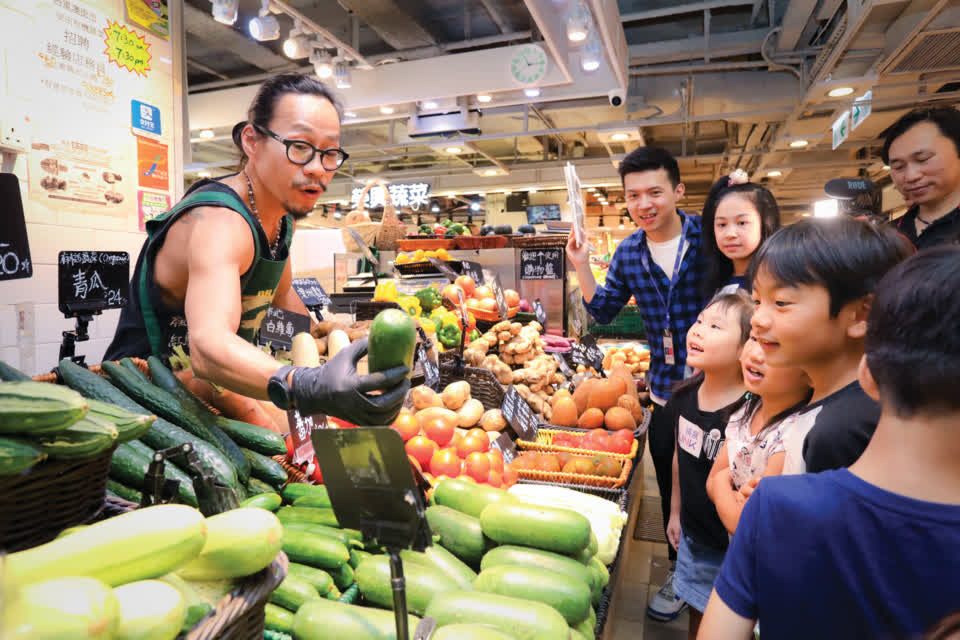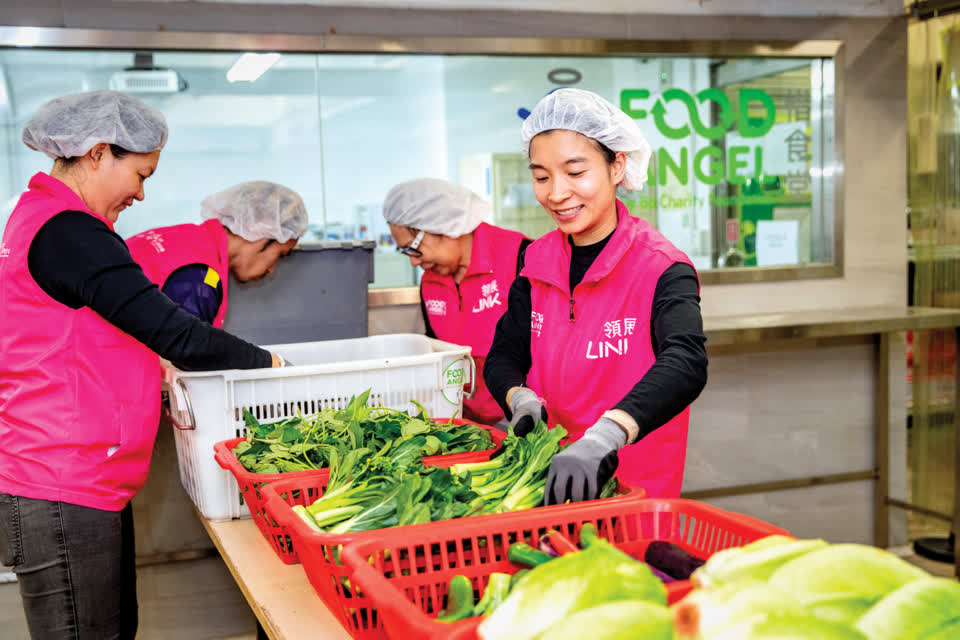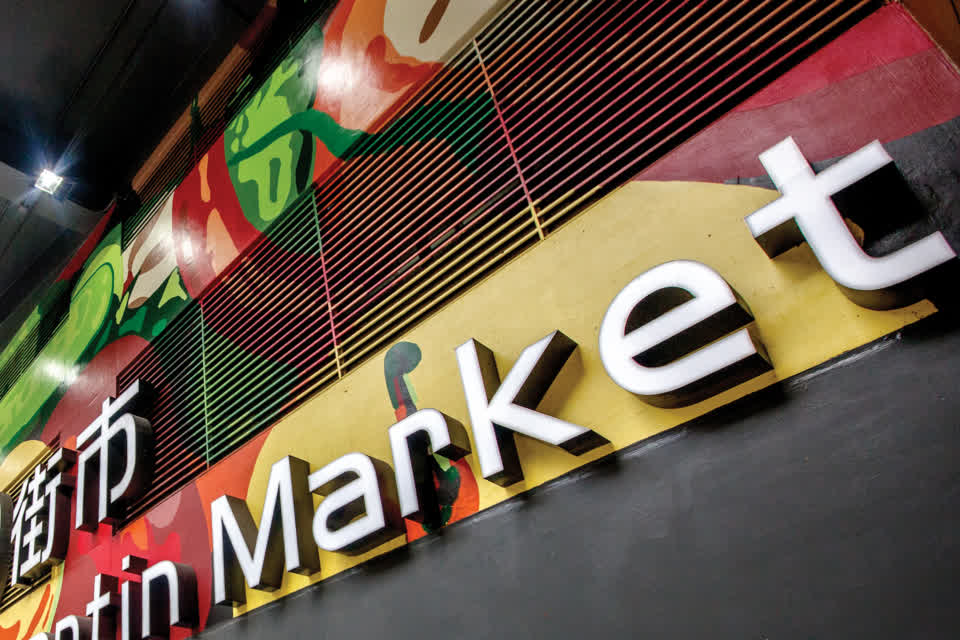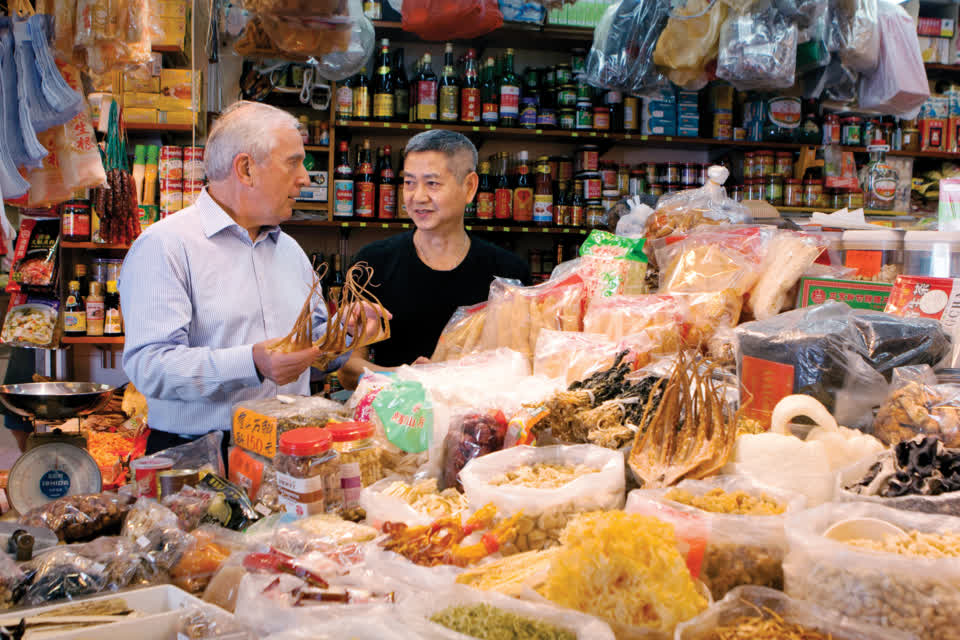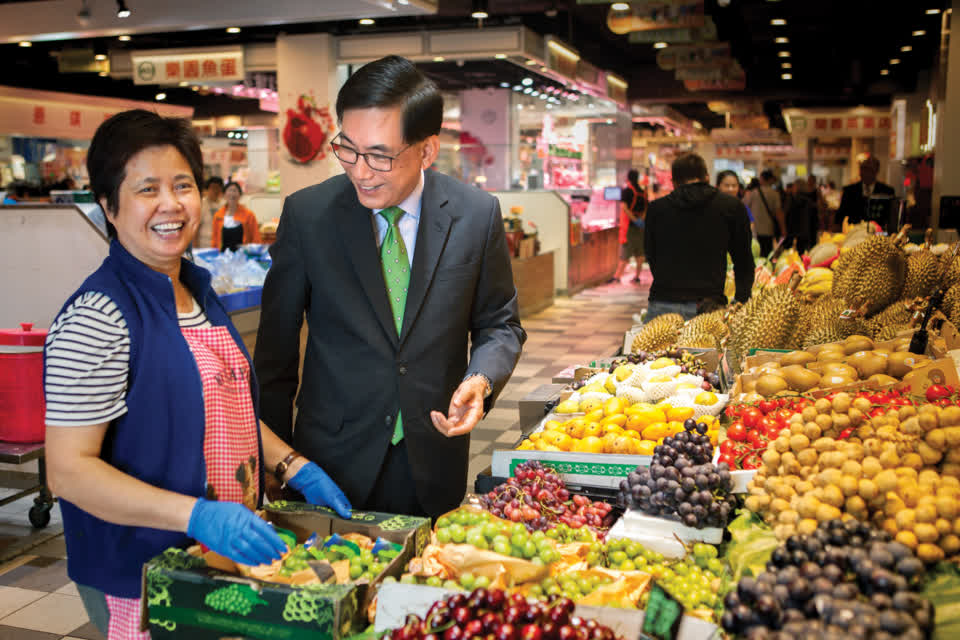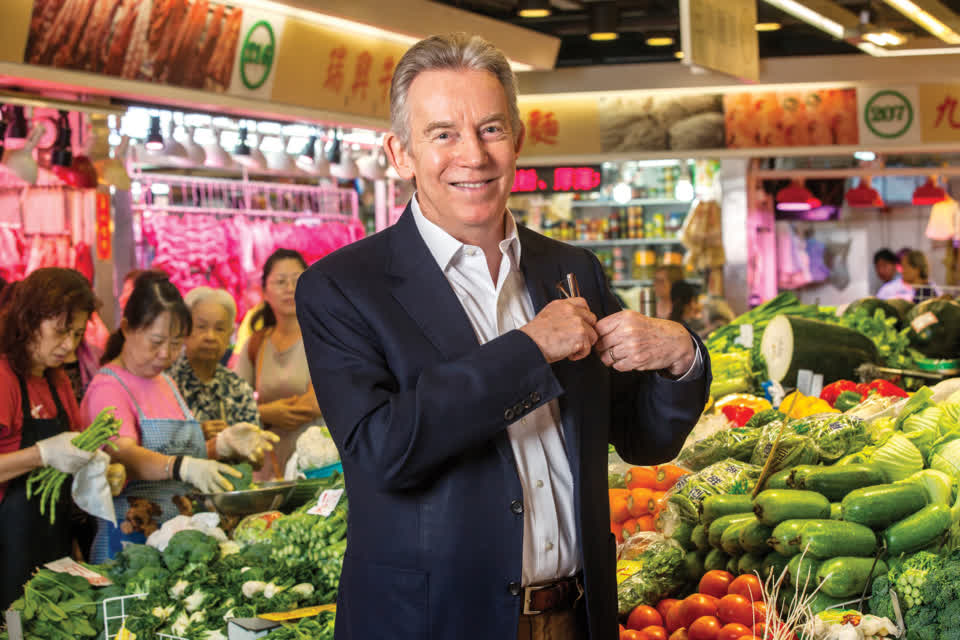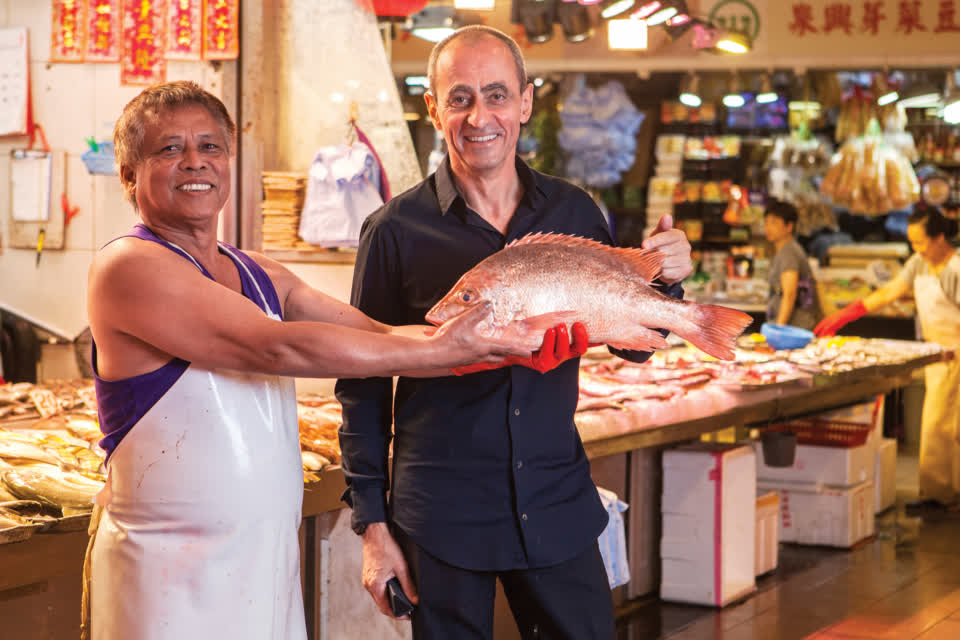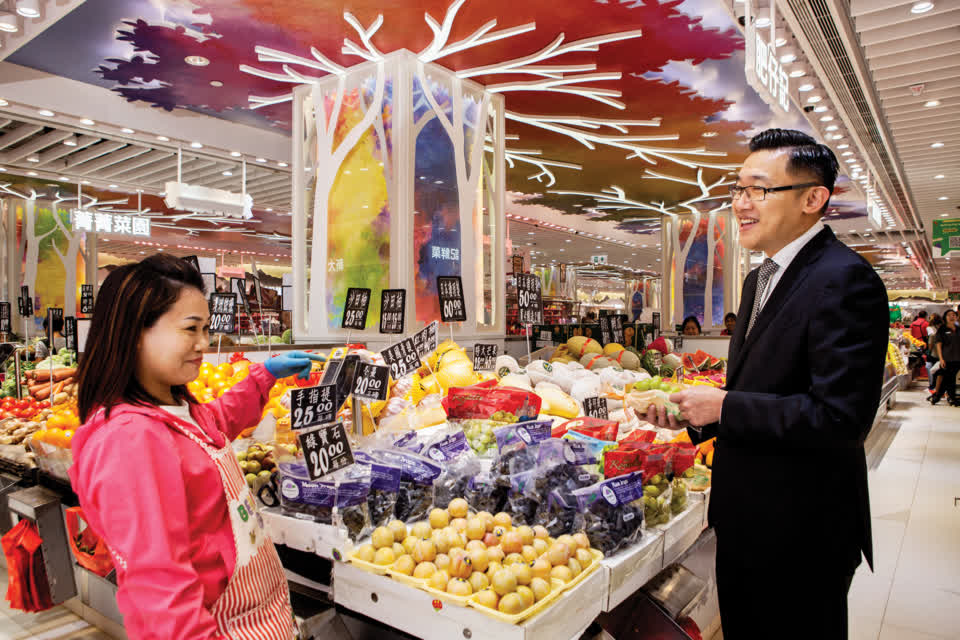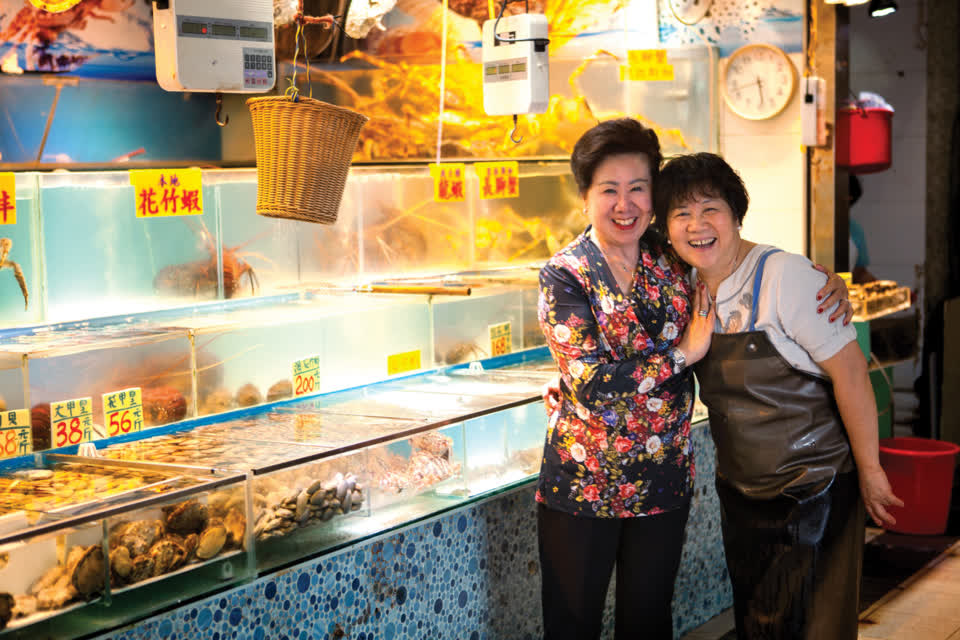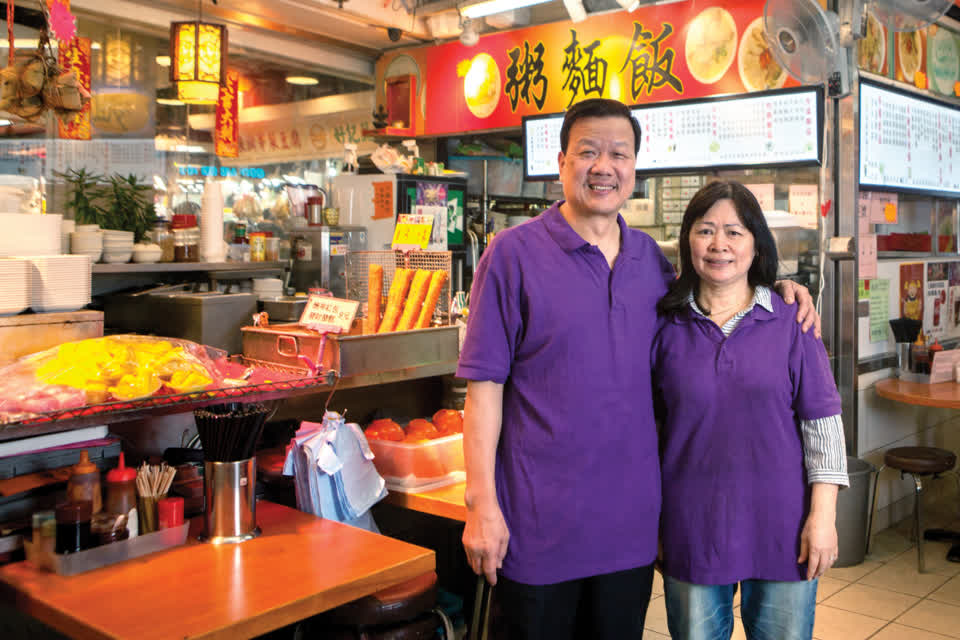Link’s fresh markets enhance their role as hubs of the community by building relationships in each neighbourhood. Market tenants, customers and nearby residents can all benefit from moves towards recycling and sustainable development.
One element of this is acting locally to champion responsibility towards our shared resources.
Let’s take food waste as an example. We tend not to realise how much food we each throw away every day, and when you look at the city as a whole, it can be shocking to learn the total figure. About 3,600 tonnes of food waste are disposed of every day in Hong Kong. This makes up about a third of the city’s total solid waste. If it is sent to landfill sites, food breaks down and produces methane, a greenhouse gas which contributes to climate change.
“Fresh markets have a major role in promoting environmental sustainability”
Besides cutting methane emissions and lowering our carbon footprint, reducing food wastage can conserve energy and resources, and prevent pollution caused in the growing, manufacturing and transporting of food. It can prevent the additional pollution of hauling it to landfills. Perhaps more importantly, it can support our communities by providing untouched food – which would otherwise have gone to waste – to underprivileged people who may not always have a steady food supply.
It’s in all our interests to reduce the amount of food that is wasted.
“Fresh markets have a major role in promoting environmental sustainability,” says Link CEO George Hongchoy. “Hence we work with green groups to reduce food waste with surplus food recycling programmes.”
RECYCLING TO HELP PEOPLE IN NEED
One of these green groups is Food Angel, and Link works with this organisation through its flagship charity and community engagement programme: Link Together Initiatives.
Since 2013, this programme has been supporting and advancing sustainable development in the neighbourhoods Link serves. Each year, up to 0.25 per cent of the net property income of the previous financial year is devoted to funding charitable projects. So far, more than HK$75.5 million has been earmarked to support community schemes.
“We have joined forces with Food Angel to collect about 1.7 tonnes of surplus food from our fresh markets every day, and turn it into hot meals and food packs for people in need,” says Hongchoy.
Zoe Lee is Associate Chief Executive Officer of Food Angel, and she explains how her group has shared values with Link. “I think both our organisations are very concerned about sustainability in Hong Kong,” she says.
“Our mission is ‘waste not, hunger not, with love’. We want to promote the idea that we should cherish food, and we want to promote a stronger sense of caring for the needy in our community. We know that Link is also very concerned about sustainability, in terms of how we are going to make the best use of the recycled food, and they are also very caring about the needy in Hong Kong. And so we are very grateful that Link has invited us to run this food recycling programme since 2016.”
They started off by recycling surplus food in 13 of the fresh markets, and Link also allowed them to place food collection boxes in 15 of its shopping malls.
“We got off to a very quick start because we managed to recycle quite a significant amount of surplus food from the markets as well as the food collection boxes,” Lee says. “In fact, in the past four years, we collected more than 1,050 tons of surplus food. And with this 1,050 tonnes of food, we managed to produce 3.4 million meals for the underprivileged in Hong Kong. In addition to these hot meals, we produced more than 200,000 food packs for the needy.”
Lee says that partnering with Link has benefited 3.6 million people in Hong Kong. “Of these people, 70 per cent are the elderly, and about 20 per cent are from low-income families,” she says. “The other 10 per cent may be the unemployed, or the physically challenged, or people living in subdivided flats, or homeless people. So these are the people we have been helping by collecting surplus food from Link.”
“With this 1,050 tonnes of food, we managed to produce 3.4 million meals for the underprivileged”
Hannah Chan is Senior Officer at Food Angel, and is responsible for project and food donor engagement. She explains how the programme started.
“There was an open call for funding proposals,” she says. “We looked at it and we realised that Link Together Initiatives and Food Angel shared the same values, so we submitted our proposal.”
Since 2016, the project is now in its fourth consecutive year, and it has expanded to collect surplus food from more than 30 of Link’s fresh markets daily. Fresh vegetables – like lettuce, Chinese spinach, carrots and cabbage – are common staples, as are frozen meat, and rice.
How does it work? The process starts each evening at around 7pm. Each market has one designated person who will tour the building as the stalls are about to close, and collect surplus food from the stallholders. Food Angel then collects this food from each market, and they do so with trucks and drivers sponsored by Link.
“The logistics teams will go to each fresh market daily to collect all the food,” says Chan, “and then they will bring it to our food station.”
In the year 2018/19, an amazing 172,898 kilograms of surplus food worth some HK$2.6 million was collected from Link’s fresh markets.
“The number of markets donating food has increased from 13 to now 34,” says Lee. “So it is good that Link gives access to us, and also provides the sponsorship for us to recruit part-time staff to collect food from the markets. In the past few years, Link has also been supporting us with two trucks that allow us to collect food from the markets in a more efficient manner, so that we can fully comply with food safety standards.”
“We realised that Link Together Initiatives and Food Angel shared the same values”
FRESH FROM THE VENDORS
Stallholders in Link’s markets are happy to take part. For instance, Joanna Chan runs the Great Fruit stall at Lok Fu Market. “Our stall sells all kinds of fruits from all over the world,” she says. “The US, Japan, Thailand, mainland China, Taiwan, southeast Asia... anywhere, you name it.”
She thinks the food recycling programme is very worthwhile so she decided to support it when she saw it was available in her market. She donates all surplus fruits which are in good shape at the end of the day. The fruits are sent to Food Angel’s kitchen and repacked into meal boxes.
“I feel good about being able to help those in need, like the underprivileged families and the elderly,” she says. “I spent some time overseas and learnt that it is a waste if you don’t pack the food you can’t finish at a restaurant. Because of this, I fully support any food recycling programme to reduce food waste and help people in need.”
Joe Tang runs the On Tin Organic stall at TKO Market in Hang Hau. Their business is selling organic vegetables which are grown on their farms. They have been running their stall in TKO Market for two years now, after expanding from their first stall at Tin Shing Market in Tin Shui Wai. They began donating from their first stall, when Link started this programme.
As vegetables only sell for a day – especially organic ones – he thinks it’s a good idea to donate the ones which are left over when evening comes. Donating is a good way to use produce which may not look as good but is still fresh and nutritious.
Tang donates two or three boxes of organic vegetables every day. Besides the items not sold at the end of the day, these also include the less attractive ones that he picks out when he examines all the fresh produce before the day starts. They are used for cooking hot meals.
“It’s a win-win situation for us to donate the vegetables,”
he says. “With the donation programme, these leftover vegetables won’t be wasted, and it’s also a meaningful act. The vegetables are organic, fresh and healthy, and they help those in need by adding to the meal boxes’ nutritional value.”
The programme is a great way to reduce wastage, and it has the support of many of Tang’s customers too.
